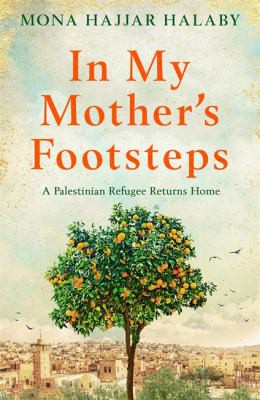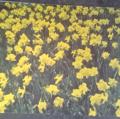Stephanie Jane recenzis In My Mother's Footsteps de Mona Hajjar Halaby
A poignant memoir
5 steloj
In My Mother's Footsteps is a poignant memoir of loss and survival, of a people systematically ousted from their homes and of how those people's children and grandchildren are still traumatised by the way in which they were - and still are - treated in their occupied homeland. This book gave me an authentic first-person insight into the oppression I read about fictionally in Occupied by Joss Sheldon and My Name Is Adam by Elias Khoury. Through her own memories, family anecdotes and letters from her mother, Mona Hajjar Halaby emotionally describes how the 1948 Nakba, the violent Israeli cleansing of Palestinians from their homes, directly resulted in her family's sixty year exile. It was particularly saddening for me to understand how the open, tolerant and multicultural Palestine of the 1940s and earlier has been warped into impoverished, isolated communities that still remain and to understand how much ancient Arabic …
In My Mother's Footsteps is a poignant memoir of loss and survival, of a people systematically ousted from their homes and of how those people's children and grandchildren are still traumatised by the way in which they were - and still are - treated in their occupied homeland. This book gave me an authentic first-person insight into the oppression I read about fictionally in Occupied by Joss Sheldon and My Name Is Adam by Elias Khoury. Through her own memories, family anecdotes and letters from her mother, Mona Hajjar Halaby emotionally describes how the 1948 Nakba, the violent Israeli cleansing of Palestinians from their homes, directly resulted in her family's sixty year exile. It was particularly saddening for me to understand how the open, tolerant and multicultural Palestine of the 1940s and earlier has been warped into impoverished, isolated communities that still remain and to understand how much ancient Arabic history and culture was both destroyed and denied by the people who now live on that land and, in many cases, in the very same houses from which Palestinians were ousted.
I felt Halaby related particularly well her internal anguish at being overlooked and unseen within her own homeland. I was frequently surprised at her polite restraint when faced with people who blithely believed official propaganda about how Palestine had been prior to its being split in 1948 (it certainly wasn't a wasteland!), and with the daily grind of obstructive bureaucracy and ridiculous rules for Palestinians today. Her rage is palpable, but this book is a balanced account, not a tirade. I was wearily ashamed to spot too that historic high-handed British interference was the root of the present day impasse. Is there anywhere in the world we didn't march into and wreck?
I appreciated the varied aspects of Halaby's Palestine experience that she chose to share with readers. In My Mother's Footsteps comprises an intensely personal family history, but we are also given an insider's view of the year she spent working within a Palestinian school. Halaby's specialisation in conflict resolution would seem to have been tailor-made for this opportunity, but her realisation of just how negatively affected the children are by the extreme violence they have witnessed made for uncomfortable reading.
I think there is dawning awareness globally of the plight of Palestinian people and a sense that the international community needs to step up. The events of the Nakba should be widely known and understood beyond the Palestinian diaspora and I think In My Mother's Footsteps is a valuable resource for spreading the word. I was both impressed and moved by Halaby's memoir.

